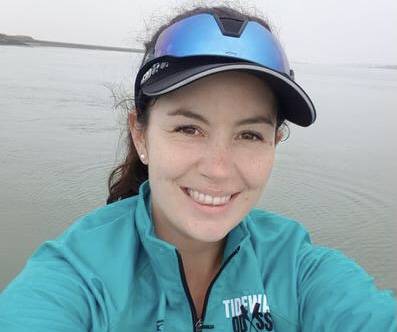Caribbean platform developed for maritime jobs

A new platform, ACMF-CAREX, has just hit the jobs market in the Caribbean, which could change how maritime jobs are pursued and acquired in the region.
ACMF-CAREX is a jobs platform for the maritime sector which was recently launched by the American Caribbean Maritime Foundation (ACMF), which is a non-profit foundation committed to alleviating poverty and transformation through maritime education and community development. It currently supports 71 scholarship recipients and grantees from St Lucia, St Vincent and the Grenadines, Jamaica, Trinidad, Grenada, Guyana, The Bahamas, and Dominica.
First on board the new platform are over two hundred maritime graduands and soon to be graduands from across the Caribbean, who trained at the Caribbean Maritime University (CMU), the LJM Maritime Academy in The Bahamas, and the University of Trinidad and Tobago. The first of its kind, exclusively for the Caribbean, the jobs board www.acmf-carex.orgis only accessible to employees in the region.
Job seekers living outside of the Caribbean are not able to register on the site. However, prospective employers anywhere in the world can register and will have full access to the qualified workers profiled on the site who are looking for job opportunities.
Royal Caribbean International is doing its part to meet the projected shortfall of workers in the industry, including 90,000 officers by 2026. In its partnership with the ACMF, Royal has committed to “hiring cadets and help guide them so they can become captains on Royal's ships, which is the way it should be,” explained Michael Bayley, president and CEO, Royal Caribbean International.
As for the types of jobs that Caribbean nationals are trained to do at Caribbean institutions, they cover the gamut from cadets to robotics engineers, including positions at sea and on land. The 1.89 million people currently employed at sea in the maritime industry is only half of the number of employees in the field. Shore-based workers and professionals, such as engineers, logisticians, port managers, truckers, hospitality workers, supply chain managers, customs clerks double that number.
Caribbean challenging the
One country dominates in providing maritime workers, and that is the Philippines, which provides more than 30 per cent of the globe's maritime works, followed by China. According to ACMF president, Jamaican-born Dr Geneive Brown Metzger, “the Caribbean can do what the Philippines is doing, and we have the support of several of the shipping lines that operate their business in the region. We plan to create a paradigm shift in the maritime job search process in the Caribbean.”
The ACMF began with five scholarships in 2017 at the CMU, has now funded bachelor's and Bachelors of Science for almost 70 scholars and grantees at four academic institutions across the Caribbean — the CMU, LJM Maritime Academy in The Bahamas, MatPal in Guyana, and the University of Trinidad and Tobago. Among the internationally accredited maritime training institutions in North America is the CMU, whose credentials include accreditation from the International Standards Organization and Accreditation Service for International Colleges for all its programmes.
The ACMF has tied its mission to a broader regional goal beyond the maritime industry to alleviating poverty and addressing gender equity disparities in the maritime sector. The ACMF seeks out student beneficiaries who see themselves as transformational agents for their families. “We also ensure that women get the support they need by awarding at least fifty percent of our scholarships to them,” explains Dr Brown Metzger.
ACMF scholarships have often been the only chance to find the funding to complete a degree or to continue studying, particularly during the pandemic where family incomes dropped when parents lost jobs. Donations of laptops to students who were struggling to do class assignments on mobile phones also met a critical need and kept students on track.






0 Comment